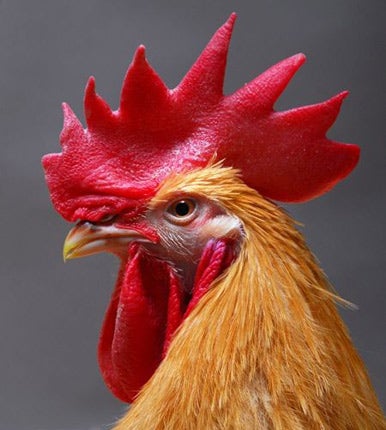GM lab creates chicken that cannot spread bird flu

Scientists have developed a way of curbing the spread of avian flu with the help of genetically modified chickens that do not spread the virus.
The chickens have an extra piece of DNA inserted into their genomes which produces a "decoy" molecule that blocks the replication of the influenza virus and prevents transmission to the rest of the flock.
Researchers believe the breakthrough could eventually lead to the creation of GM poultry, pigs and other livestock that are fully resistant to a range of infectious diseases. They also said that the development could help to lower the risk of transmitting dangerous animal viruses to humans.
While consumers in Britain have been resistant to plant-based products containing GM ingredients, the scientists behind the GM chicken believe that the proposal to develop disease-resistant varieties might become acceptable due to concerns about animal welfare and the transmission of infections to humans. Laurence Tiley of Cambridge University, who was a key member of the research team, said: "We believe the attitude of the UK public to GM food depends on the nature and purpose of the genetic modification.
"Disease resistance is clearly a beneficial characteristic for animal welfare and public health."
The GM chicken was created by adding a synthetic fragment of DNA to their chromosomes, which causes the chickens to manufacture small lengths of RNA, the genetic molecule used by influenza viruses.
These particular pieces of RNA act as decoys by locking on to the enzyme used by flu viruses to make copies of themselves.
"The decoy mimics an essential part of the flu virus genome that is identical for all strains of influenza A.
"We expect the decoy to work against all strains of avian flu and that the virus will find it difficult to evolve to escape the effects of the decoy. If you've got genetically modified chickens that are resistant to the avian flu virus then you don't in theory have to bother with vaccination anymore," he added. When scientists carried out tests on the GM chickens they found that although the birds were still vulnerable to being infected with avian flu and that they became sick with flu, but they did not appear to transmit the virus to other members of their flock, even if these birds were normal, non-GM varieties.
Helen Sang of the Roslin Institute at Edinburgh University, another leading member of the team that carried out the study, published in the journal Science, said that the results achieved so far are "very encouraging".
Join our commenting forum
Join thought-provoking conversations, follow other Independent readers and see their replies
23Comments